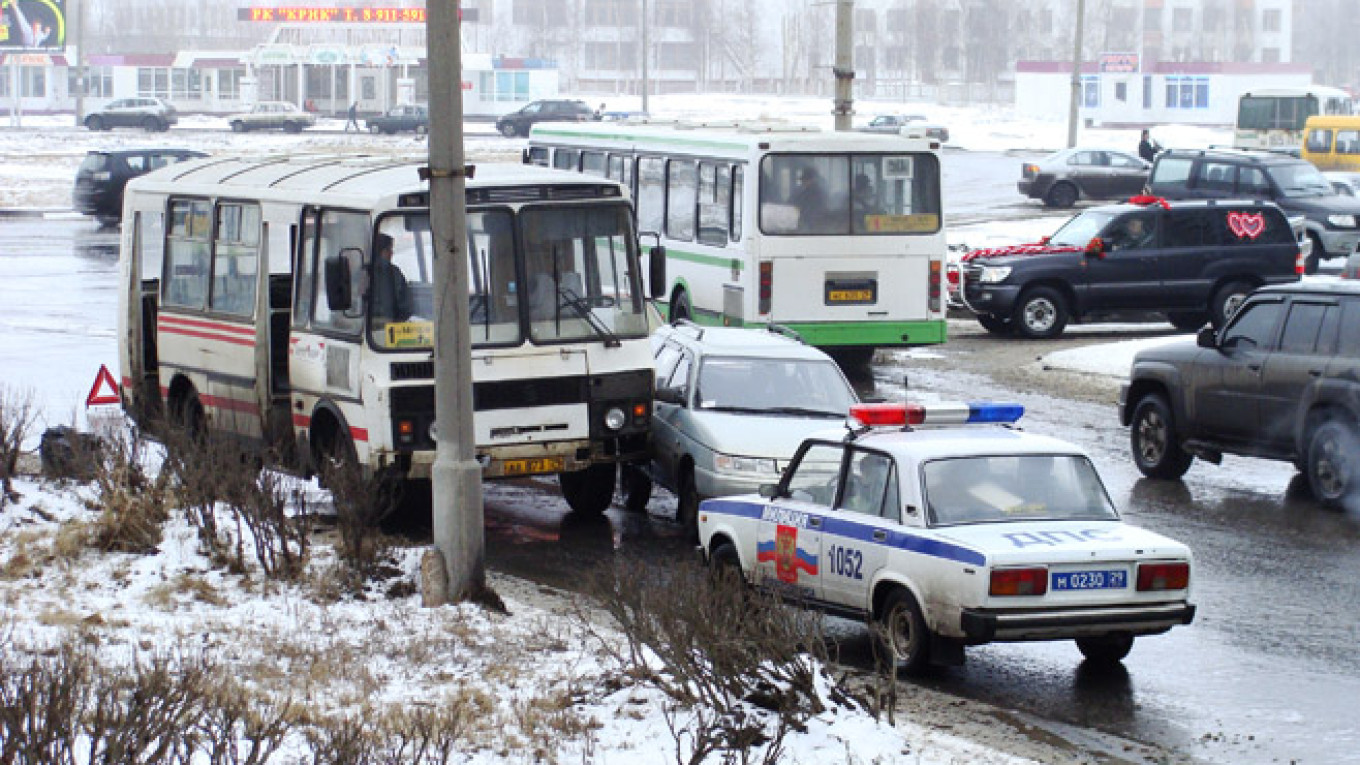An adequate road network is one of the necessary factors in the economic development of any country. In the case of Russia, any economic gains run the risk of not being sustained unless the government pays special attention to building an efficient and safe road network. In 2000, Russia had 754,000 kilometers of paved roads, a figure that increased only marginally by 2008, and at a cost much higher than in the West.
The bad condition of most Russian roads is responsible in part for the large number of accidents. Relative to the number of cars driving on them, Russia's roads are the world's deadliest. Each day, there are 570 accidents on the country's highways, which lead to almost 35,000 deaths per year.
The situation is dire. It is estimated that 80 percent of traffic lights on the country's roads have already been used for a period exceeding their service life, while only 85 percent of the highway network is equipped with road signs. There is general agreement that the condition of the roads has not been improved to deal with the increase in the number of vehicles throughout the country.
Russia's increasing number of deaths on the roads parallel an alarming demographic crisis, a situation the government has promised to address. It is estimated that more than 50 percent of all road traffic deaths are among people aged 15 to 44, the most economically productive age group. The high incidence of traffic accidents puts the country's health care system under enormous pressure.
Public policies are critical for lowering the number of traffic accidents and their negative impact. Britain, Sweden and the Netherlands have been able to obtain dramatic reductions in road-casualty levels following wide-ranging approaches to road safety. The World Economic Forum's Global Competitiveness Report stated that Russia ranks 125th out of 139 countries on the quality of its highway infrastructure. This fact has not been lost on the Russian government.
"The national economy lost $175 billion from traffic accidents over the past five years. That is comparable to overall health care expenditures of the same period," Russia's then-President Dmitry Medvedev said in 2009.
Russian authorities should strengthen prevention efforts — the best way to avoid road accidents — through massive and sustained education campaigns in schools and through mass media, and should also enforce stringent penalties for those not using seat belts. At the same time, health authorities should plan more immediate and efficient attention to those hurt in traffic accidents, increasing the number of ambulances and providing those vehicles with more equipment to save lives.
Viktor Kiryanov, president of the Russian Automobile Federation and a member of the United Nations' advisory group on sustainable transportation, stated at the 62nd UN General Assembly that traffic accidents not only create socio-economic expenses for victims and their families, but place an onerous burden on public health services.
He stressed that it is vitally important to reduce the number of traffic accidents to thus lower fatalities and achieve sustained socio-economic development. This is an important statement that should be followed by appropriate and effective actions. Until these actions are taken, the poor condition of Russia's roads will continue to hamper economic development.
Cesar Chelala is an international public health consultant and a winner of an Overseas Press Club of America award.
A Message from The Moscow Times:
Dear readers,
We are facing unprecedented challenges. Russia's Prosecutor General's Office has designated The Moscow Times as an "undesirable" organization, criminalizing our work and putting our staff at risk of prosecution. This follows our earlier unjust labeling as a "foreign agent."
These actions are direct attempts to silence independent journalism in Russia. The authorities claim our work "discredits the decisions of the Russian leadership." We see things differently: we strive to provide accurate, unbiased reporting on Russia.
We, the journalists of The Moscow Times, refuse to be silenced. But to continue our work, we need your help.
Your support, no matter how small, makes a world of difference. If you can, please support us monthly starting from just $2. It's quick to set up, and every contribution makes a significant impact.
By supporting The Moscow Times, you're defending open, independent journalism in the face of repression. Thank you for standing with us.
Remind me later.


